Faculty News
Summer 2016
Presley Searches for Zika Mosquitoes
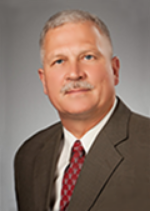
Steve Presley, Professor of Immunotoxicology and Director of the Biological Threat Research Laboratory at The Institute of Environmental and Human Health, was interviewed in an Aug. 17 KAMC-TV news story: "Protecting Against Zika: TTU Researchers Lead New Mosquito Testing Across the Panhandle." The program outlined the collaboration between Texas Department of State Health Services and mosquito experts across the state, Presley among them, to develop and conduct statewide surveillance of mosquitoes to document evidence of aedes albopictus and aedes aegypti, the mosquitoes that can carry the Zika virus. Presley told KAMC that, in Lubbock, mosquitoes are tested regularly and the city is aware that both types of mosquitoes live here. But many smaller communities don't have the same resources that Lubbock does. The story described how this new collaboration will systematically collect mosquito eggs county-by-county and evaluate the mosquitoes that hatch to learn where these mosquito species occur. The goal is to identify the locations where Zika virus, Chikungunya virus, or Dengue fever virus might be transmitted. Presley also reminded KAMC viewers that other mosquito-borne diseases, such as West Nile virus and St. Louis encephalitis, have the potential of being transmitted to humans.
Hayhoe Quoted on Louisiana Floods
Katharine Hayhoe, Associate Professor in the Department of Political Science and Director of TTU's Climate Science Center, was quoted in an Aug. 15 Washington Post story about Louisiana's historic August flooding. "Louisiana is always at risk of floods, naturally, but climate change is exacerbating that risk, weighting the dice against us," Hayhoe told the newspaper.
Iber Asked About Latinos in Olympics
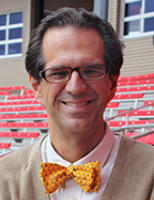
Jorge Iber, Professor in the Department of History and Associate Dean in the College of Arts & Sciences, was quoted extensively in an Aug. 11 Fox News Latino story about the small percentage of Hispanic American athletes participating in the 2016 Olympic Games. The article, "Latino Population in U.S. Keeps Growing, But Not Number of Latino Athletes in the Olympics," examined the economic and cultural factors that resulted in "only 18 Hispanics among the U.S.'s 554 athletes–or about 3 percent–competing in this summer's Olympic Games in Rio de Janeiro," according to the story. "A lot of these sports require highly specialized training, and for a lot of Latino families that is just not affordable," Iber told Fox News Latino. "You have a lot of families who can't even afford for their sons and daughters to play high school sports," and many Hispanic parents don't see sports such as swimming or gymnastics "as a visible path forward, or they need their kids to work and help out with the family's financial situation," Iber was quoted as saying. "In that sense these families are not different from those of the German or Italian immigrants who came to the U.S. at the turn of the 20th century." Iber is the author of "Latinos in U.S. Sport: A History of Isolation, Cultural Identity, and Acceptance" (Human Kinetics 2011) and several other books, including his most recent release, "Mike Torrez: A Baseball Biography" (McFarland & Co. 2016)
Deans Joins Floating Geology Lab
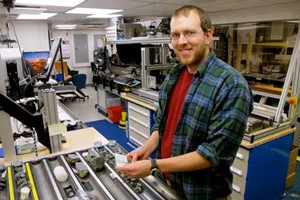
Jeremy Deans, a Post Doctoral Researcher in the Department of Geosciences, was one of 30 scientists who spent two months in the Indian Ocean aboard the research vessel JOIDES Resolution, studying core samples drilled from the Earth's mantle. The location was chosen because the sea floor at Atlantis Bank is only 700 meters (2,297 feet) deep and has features that bring the mantle, which lies beneath the Earth's crust, closer to the surface. Deans' research group measured core samples for brittle features, including fractures and faults; the alignment of minerals, both when the rock was partially molten and when it was solid; veins, which are fractures filled with minerals; and the relative timing of events. In an August 9 Texas Tech Today story, Deans said that his time on the research expedition was one of being wholly focused on describing and reporting on the core recovered every day and working in close quarters with specialists in different fields from all over the world. Professionally and scientifically, Deans told Texas Tech Today, the experience was unparalleled with new network connections, rigorous scientific discussions, samples for future work, and new lines of study for himself and his my students.
Paine Quoted on Shuttered DNA Lab
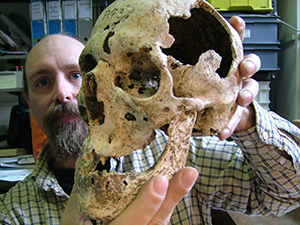
Robert Paine, Professor in the Department of Sociology, Anthropology & Social Work and Director of the Master's of Forensic Science Program, was quoted in an Aug. 6 Texas Tribune story about the forced shut-down of the Austin Police Department's DNA testing lab. The Federal Bureau of Investigation a year ago notified crime labs nationwide that they were using obsolete methods to examine DNA samples containing genetic materials from multiple people, the story said. Austin was one of them. Then, in June, an audit by the Texas Forensic Science Commission found the department using untrained staff and improper testing procedures, bringing into question the scientific integrity of the lab's DNA test results. Paine told the Texas Tribune: "Science is a self-correcting re-evaluating process. Techniques change, federal guidelines change, so [labs] have to adjust to the necessary standards." The city of Austin and the state ultimately might have to find the funding to help labs hire staff and meet standards, Paine was quoted as saying, adding that it would be difficult to know at this point whether any Travis County criminal cases might have been decided based on flawed DNA analysis.
Gittner on Pros, Cons of Games in Rio
Lisa Gittner, Assistant Professor in the Department of Political Science, was interviewed by WalletHub for an Aug. 1 article about the challenges of holding the 2016 Olympic Games in Rio de Janeiro. Gittner told WalletHub that exposure to pollution, deteriorating infrastructure, and the Zika virus threat—added to the stress of competition—could take a toll on the athletes' bodies. She cautioned tourists to wear long pants and use insect repellent to fend off the mosquitoes that carry Zika virus. Gittner also talked about the Olympic's economic impact on Brazil: "I don't think any Olympics is ever an economic boon for a country but I do think it can be a PR goldmine," she was quoted as saying. "Look at Lake Placid, N.Y., which is a vacation destination after the Olympics, and no one even knew where it was before."
Presley Talks about TTU's Zika Lab
Steve Presley, Professor in the Department of Environmental Toxicology and Director of TTU's Biological Threat Research Laboratory, was interviewed by Waco's KXXV-TV in a July 30 Healthwise Special about the Zika virus. Presley's lab is equipped to screen for Zika, making it part of the Laboratory Response Network (LRN). "My lab is part of the public health emergency preparedness program. If there's a major issue, we work with whoever the authority is," Presley said in the Healthwise Special.
DeLucia Citede in 'Motorbike Rider'
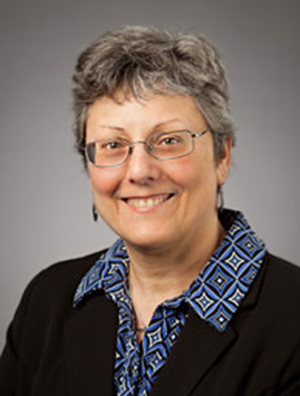
Patricia DeLucia, Professor of Experimental (Human Factors) Psychology in the Department of Psychological Sciences and Associate Vice President for Research, Faculty Affairs, conducted a study, "Current Directions in Psychological Science," that was covered in the July 28 online edition of Motorbike Rider. The article, "How to Avoid SMIDSY Collisions," referenced DeLucia's study to explain that an object's size affects distance perception, leading automobile drivers to miscalculate the distance and speed of motorcycles—the SMIDSY dynamic (sorry, mate, I didn't see you) that could be the cause behind as many as three out of four collisions involving motorcycles, the article stated. DeLucia's research showed in computer simulations that when people viewed a large object and a small object approaching simultaneously, those people generally perceived that the larger object was closer. With motorcycles being the smallest vehicles on the road and the fastest accelerating, automobile drivers tend to think that motorcycles will arrive much later than they actually do, the article reasoned, concluding with a list of defensive driving precautions motorcycle riders can take to avoid collisions.
Tinsley on Fish Oil and Sore Muscles
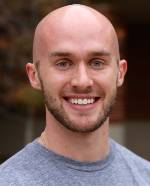
Grant Tinsley, Assistant Professor in the Department of Kinesiology & Sport Management, was Principal Investigator in a Baylor University study on the effects fish oil supplementation on muscle soreness after resistance exercise. (Tinsley was a Baylor Ph.D. Student at the time.) The study, "Effects of Fish Oil Supplementation on Postresistance Exercise Muscle Soreness," published online July 21 in the Journal of Dietary Supplements, was a randomized, placebo-controlled, double-blind trial in which female subjects with no resistance training consumed supplements or placebos for one week. The subjects then underwent a single bout of resistance exercise consisting of 10 sets to failure of elbow flexion and leg extension machines. Muscle soreness was measured daily over the next week as the subjects continued taking their assigned supplement or placebo. At 48 hours and one week post-exercise, limb circumferences and soreness during functional movements were measured. Those taking the fish oil perceived less static and functional muscle soreness than did those taking the placebo. Although the differences were not statistically significant—responses were 33 percent to 42 percent lower with fish oil versus placebo—supplementing the diet with 6 grams per day of fish oil may be "an effective means of reducing the magnitude of muscle soreness in those wishing to initiate an exercise program," Tinsley is quoted as saying in an August 3 interview published in Food Navigator Asia.
Britt, Maccarone Find Lonely Young Star
Chris Britt, Postdoctoral Researcher, and Tom Maccarone, Associate Professor, both of the Department of Physics & Astronomy, have published a study on CX330 in the Monthly Notices of the Royal Astronomical Society. The two headed a research team in identifying what lead author Britt says is likely a rapidly growing young star. The object, called CX330, is unusual for its middle-of-nowhere location in the universe; young stars typically form from gas- and dust-rich regions in star-forming clouds, according to a July 27 Texas Tech Today story about CX330. However, the story said, it is possible that other stars may be near CX330 but have yet to be detected.
Tang on Integrative Body-Mind Training

Yi-Yuan Tang, Presidential Endowed Chair in Neuroscience and a Professor in the Department of Psychological Sciences, continues to be the subject of media attention for his method of mindfulness meditation called Integrative Body-Mind Training (IBMT). This month, his work was featured in a July 18 article for Texas Tech Today, in which Tang said of his research: "IBMT works by brain (central nervous system) and body (autonomic nervous system) interaction. IBMT coaches help participants to change both body and mind states to achieve a meditative state; this is why participating in just five 20-minute sessions of IBMT has shown increased attention, relaxation, calmness, body-mind awareness and brain activity." Tang said that the specific parts of the brain most affected by IBMT–the anterior cingulate cortex and adjacent medial prefrontal cortex–are mainly involved in self-control ability. Thus the method has the potential of helping prevent and treat mental disorders and learning disabilities. Tang's next research will be to conduct large-scale longitudinal studies to more fully understand brain-body mechanisms of mindfulness and their applications.
Gamez Receives Grant from NSF
Gerardo Gamez, Assistant Professor in the Department of Chemistry & Biochemistry, has been awarded a grant from the Chemical Measurement and Imaging program at the National Science Foundation (NSF) Division of Chemistry. The 3 year grant of $381,127 will allow the development of an ultra-high throughput surface elemental mapping technique based on glow discharge optical emission spectroscopy.
Klein Quoted on Fluoridated Water
David Klein, Associate Professor in the Department of Environmental Toxicology, was quoted in a July 14 Avalanche Journal (AJ) article on the health controversy surrounding the addition of fluoride to municipal drinking water. Klein told the AJ: "If you go back and look at why people put fluoride in water, it's because they went to areas of West Texas where there was relativity high natural fluoride and people didn't have cavities." Klein said, "It's important to have fluoride because everything you put in your mouth for dental hygiene has fluoride."
Gelca Coaches USA Math Team to Victory
Razvan Gelca, Professor in the Department of Mathematics & Statistics, was deputy coach of the U.S. Mathematics Team that placed first at the 57th International Mathematical Olympiad in Hong Kong, July 6-16. Teams from more than 100 nations and territories competed. The U.S team scored a total of 214, the Republic of Korea came in second with a score of 207, and the People's Republic of China placed third with a score of 204.
Hill Quoted on Police & Racial Violence
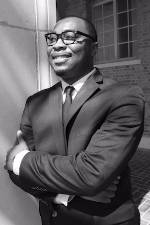
Karlos Hill, Associate Professor in the Department of History, was quoted in a July 11 CANMUA article about how some police departments have implemented racial sensitivity training for police officers. Written in the wake of killings of police officers in Dallas and Baton Rouge, La., the article quoted Hill as saying that he thought Black Lives Matter had begun convincing elected leaders to take action to reduce violent encounters with police. However: "Any hope for mobilizing our congressmen or our state officials to pass legislation or push police unions and police departments to change police practices, I think that all went away when that individual decided to take the lives of those five officers." The article went on to report that Hill, author of the book, "Beyond the Rope: The Impact of Lynching on Black Culture and Memory," as saying that officials must show they're responding to the African-American community. But any announcement of changes in police practices taken by police chiefs too soon after the Dallas shootings would face severe blowback from officers and their unions. "They can't appear to be siding with the Black Lives Matter activists," Hill told CANMUA. "They won't long have a job if they do that."
McKee Quoted on Rural Voters
Seth McKee, Associate Professor in the Department of Political Science, was quoted in the July edition of Governing in the article, "Why Rural America is Increasingly Red." The story discussed the political, cultural, and economic divide between urbanand rural areas. McKee was quoted as saying, "Rural voters have become a core component of the GOP, especially white rural voters, which is most of them."
Vanos Research Featured on KCBD-TV
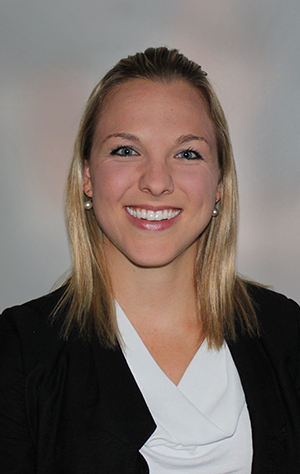
Jennifer Vanos, Assistant Professor of Atmospheric Science in the Department of Geosciences, was featured in a July 6 KCBD-TV news segment for her research on soaring surface temperatures at playgrounds. Using infrared readings, Vanos and her co-researchers found that, during summer in Phoenix, the temperature of rubber surfaces got as high as 176 degrees Fahrenheit. "But when that rubber was in the shade, it was around temperatures about 45 degrees C (113 degrees Fahrenheit) which is much closer to air temperature and much safer for kids to be playing on," Vanos told KCBD. The shade, or shade sails as they are called, made all the difference. In the KCBD interview, Vanos said Lubbock could take a cue from Phoenix: "You can drive around Phoenix and see many, many playgrounds covered with shade sails, but you don't see that in Lubbock," Vanos said. Now, Vanos wants to conduct a similar study of Lubbock playgrounds to encourage the installation of shade sails here.
Tang Research May Help Smokers Quit
Yi-Yuan Tang, Presidential Endowed Chair in Neuroscience and a Professor in the Department of Psychological Sciences, was quoted in a July 4 Avalanche Journal (AJ) story about how smokers can kick their habit. Tang told the AJ that his research has found Integrative Body-Mind Training (IBMT) therapy to be the most effective method for smokers who want to quit. Therapy sessions with an IBMT coach reveal behavioral triggers that may prompt a smoker to smoke. The coach then tells the smoker how to suppress the urge, the article stated.
Umeda & Students Publish Research
Masataka Umeda, Assistant Professor in the Department of Kinesiology & Sport Management, was principal investigator in a research article published in Biological Psychology 113 (2016) 45-51. Student researchers were Laura Kempka, Graduate Student in KSM; Brennan Greenlee, a Student in the Department of Biological Sciences; and Amy Weatherby, a Student in the Honors College. The study, "A smaller magnitude of exercise-induced hypoalgesia in African Americans compared to non-Hispanic Whites: A potential influence of physical activity," examined the potential influence of physical activity on decreased sensitivity to pain among African American and non-Hispanic white populations.
Ribeiro Book Under Contract
Anna Christina Ribeiro, Associate Professor in the Department of Philosophy, has written a manuscript, "Beautiful Speech: The Nature, Origins and Powers of Poetry," that now is under contract with Oxford University Press. Her work on "Beautiful Speech" was funded by fellowships from the National Humanities Center and the Mellon and Woodrow Wilson Foundations, and by a TTU Faculty Development Leave. Ribeiro specializes in aesthetics and the philosophy of art.
NWI Team Gets New Equipment
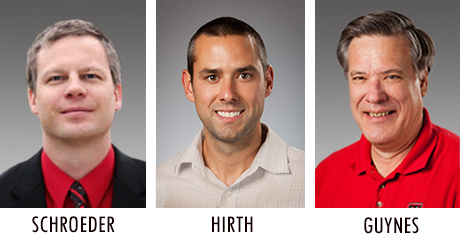
John Schroeder, Professor of Atmospheric Sciences in the Department of Geosciences, and Research Professors Brian Hirth and Jerry Guynes at the National Wind Institute (NWI), have started operating a new, advanced-technology radar system at the NWI field site. The new radar will provide better data availability for measuring air flow in the lower atmosphere, particularly the air flow among turbines in wind farms. The research project was funded by a $1.4 million grant from the U.S. Department of Energy (DOE) with the goal of making better decisions about where to place future wind plants "A wind turbine interacts with the flow field, creating a wake. As that wake translates downstream, it impacts other wind turbines," Schroeder told Texas Tech Today. Right now, this technology is the best tool available to understand how the wind turbines/plants modulate the flow field and impact each other. Hence, this technology can provide information to help increase the performance of wind plants and essentially lower the cost of energy." During the first few weeks of operation in May, the new system provided useful measurements approximately 90 percent of the time, the story reported. More research is needed, but early results are promising.
Hayhoe Quoted on Record Heat Wave
Katharine Hayhoe, Associate Professor in the Department of Political Science and Director of TTU's Climate Science Center, was quoted in a U.S. News & World Report article about a June 28 letter to Congress from 31 science organizations warning about climate change. A similar story also ran in Top Tech News. Hayhoe was quoted in both articles as comparing the situation to a doctor telling a patient he has cancer, with the patient saying he doesn't. The doctor then gets every oncologist in the hospital to tell the patient it is cancer, but is treatable. It's up to the patient. "We told you everything we could," the article quoted Hayhoe as saying. "We are like Pontius Pilate, metaphorically washing our hands."
Maccarone's Idea Leads to Discovery
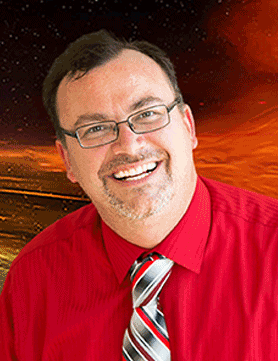
Tom Maccarone, an Associate Professor in the Department of Physics, developed the idea that some black holes could be found by searching for radio waves, rather than relying only on conventional searches by X-rays. "I came up with the idea when a result came forward showing that as the rate at which a black hole sucks in gas decreases, the radio emission gets fainter more slowly than the X-ray emission," Maccarone said in a Texas Tech Today article. "People usually look for these things in X-rays, but when they are accreting at extremely low rates, like this object, they are actually easier to find from the radio emission. I pointed this out, and wrote a paper discussing the prospects for doing this with future radio telescope facilities." The article went on to say that astronomers combined data from NASA's Chandra X-ray Observatory, the Hubble Space Telescope and the National Science Foundation's (NSF) Karl G. Jansky Very Large Array (VLA) and concluded that peculiar source of radio waves, dubbed VLA J2130+12, is a binary star system in the Milky Way that contains a low-mass star and a black hole. "It turned out that we got lucky, and there happen to be more accreting black holes than we thought," Maccarone was quoted as saying, "and our group was able to find this object with current facilities."
3 Complete Tornado Study
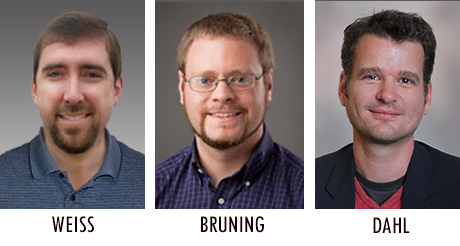
Chris Weiss, Associate Professor; Eric Bruning, Associate Professor; and Johannes Dahl, Assistant Professor, all in the Atmospheric Science division of the Department of Geosciences, participated in the VORTEX-SE project to research tornado development in the southeastern United States. VORTEX-SE, short for Verification of the Origin of Rotation in Tornadoes Experiment-Southeast, was a two-month study mandated by Congress, sponsored by the National Oceanic and Atmospheric Administration and organized by the National Severe Storms Laboratory. The purpose was to learn how the terrain, lack of visibility, inadequate shelter and other factors make the life cycle of tornadoes in the Southeast different than the life cycle of tornadoes that form in the Central and High Plains regions, with the goal of improving the accuracy of tornado warnings. Ph.D. students Vanna Chmielewski and Aaron Hill also participated in the research. According to a story in Texas Tech Today, the team used observational platforms developed at Texas Tech—StickNet probes, lightning mapping array stations and weather balloon vehicles—to measure factors that come to bear in the development of tornadoes. "We learned quite a bit, especially considering this project marked the first time anyone has carried out a coordinated field project on tornadoes in this part of the country," Weiss said in the article. "What we've gathered does seem to suggest the terrain of this area has an impact on storm development, but we need a much more robust sample to make confident conclusions. We have a much better feel for the lay of the land now, so if we're lucky enough to continue our research next year we hope to be able to incorporate many new aspects we learned this year."
Poirier Awarded Hungary Fellowship
Bill Poirier, Professor of Chemistry in the Department of Chemistry and Biochemistry, has received a Distinguished Guest Scientist Fellowship from the Hungarian Academy of Sciences. The program is intended to bring "internationally acclaimed foreign researchers as Visiting Fellows to conduct top-level research in Hungary." Only a limited number of fellowships are offered by the Hungarian government each year, in all areas of science and the humanities. Poirier will visit Eötvös Lorand University in Budapest, the top-ranked Hungarian university, from January to June 2017. Working with Attila Csaszar and other researchers in the Complex Chemical Systems Research Group, Poirier will help move the group toward the goal of advancing the field of rovibrational spectroscopy in various ways, including the development of powerful and comprehensive new computer codes.
Ancell Opens Wind Exhibit at Museum
Brian Ancell, Assistant Professor in the Department of Geosciences, conducted the research that's behind a new exhibit at the Museum of Texas Tech University. The interactive exhibit, "How Weather Works: Understanding Our Place Between the Sun and a Storm" opened June 26 and explains where weather starts and shows how many factors play a part in weather. The exhibit is geared for visitors of all ages, but especially for school-age children, and was part of Ancell's proposal in the Early CAREER grant he received from the National Science Foundation. In a Texas Tech Today story, Ancell was quoted as saying: "The driving research focuses on inadvertent weather modification, or how human activities such as irrigation, wind farms and urban heat islands can change the weather non-locally, or far away from the source."
Murray Weighs Clinton, Trump Tweets
Gregg R. Murray, Associate Professor in the Department of Political Science, has researched and analyzed the tweets of presidential hopefuls Hillary Clinton and Donald Trump in his June 26 "Caveman Politics" blog for Psychology Today. Murray applied the Moral Foundations Theory (MFT) and its five moral foundations—Care/Harm, Fairness/Cheating, Loyalty/Betrayal, Authority/Subversion, and Sanctity/Degradation—to the choice of words in each candidate's tweets. Murray found that almost a third of Clinton's Twitter language uses morality-related words and that almost a quarter of Trump's does. "I'm not sure that's a meaningful difference," Murray wrote, "but I suspect both surpass what typical tweeple (I like this term—much friendlier than "twerd" or "tweeter") use." Murray also found what he called clear differences, with Clinton focusing much more on the "liberal" Care/Harm foundation than Trump, with Trump focusing more on the "conservative" Authority/Subversion foundation than Clinton. "But, and this is a big but, he doesn't use conservative oriented Loyalty/Betrayal or Sanctity/Degradation more than she does." Even more interesting, Murray writes, is that Trump uses liberally oriented Care/Harm and Fairness/Cheating words more than he uses Loyalty/Betrayal or Sanctity/Degradation words.
Patterson Evaluates Brexit in AJ Article
Dennis Patterson, Professor and Chair in the Department of Political Science, was quoted in a June 24 Avalanche Journal article as saying that Brexit, the United Kingdom's vote to leave the European Union, would probably have little impact on Lubbock's economy, which largely is dependent on the cotton industry. The article went to report Patterson's observation that the pre-Brexit political climate in the U.K. and the pre-election climate in United States now: Voters in both counties are divided over issues such as immigration, sovereignty, and national identity.
Murray Weighs in on Trump Tweets
Gregg Murray, Associate Professor in the Department of Political Science, analyzes Donald Trump's tweets in an article for Psychology Today magazine. In his June 12, 2016, "Caveman Politics" blog for Psychology Today, titled, "Is Trump a Tyrant? What His Tweets Say," Murray applies Moral Foundations Theory (MFT) to the words Trump uses in his tweets. Murray found that almost 10 percent of the words Trump tweets are categorized by MFT as "authority-based" but not necessarily "tyrannical."
Lockwood Leads Research to Honduras
Stefanie Lockwood, Assistant Professor of Practice in the Department of Biological Sciences program in Waco, is leading 16 McLennan Community College (MCC) students, five Texas Tech students, and five faculty and staff on a joint-research study abroad program in Honduras. The program, named Texas Integrated Diving and Ecological Studies (TIDES), is designed to engage undergraduates in research and to build a research "pipeline" that will draw MCC students to Texas Tech. In just one semester, Lockwood said, at least four MCC students decided to switch to Texas Tech to continue their undergraduate research project and get a B.S. in the Department of Biological Sciences. "The program is doing what it was designed to do: meet the needs of the community with a biology degree, while upholding the standards of the TTU Biology program in Lubbock," Lockwood said. "We've come a long way in a short amount of time. We are growing and things are happening."
Tang on Lowered Smoking Statistics

Yi-Yuan Tang, Professor in the Department of Psychological Sciences, and his research on mindfulness-based intervention, Integrative Body-Mind Training (IBMT), were the subject of a May 26, 2016 article in News Medical titled, "Integrative Body-Mind Training Helps Reduce Smoking." The article stated that, according to new data from the Centers for Disease Control and Prevention, the percentage of American adults who smoked cigarettes in 2015 was down to 15.1 percent, almost 2 percent from the year before. Tang was quoted as having mixed feelings about the CDC's announcement: that it was good news but that people who have quit smoking may have moved into other habits not much better. Tang's IBMT research focuses on targeting the brain's self-control network to help reduce smoking.
Presley Talks Zika Virus in Congress
Steve Presley, Professor of Immunotoxicology in the Department of Environmental Toxicology, was part of a panel discussion, "Science of Zika: The DNA of an Epidemic," presented to members of the Congressional Committee on Science, Space & Technology on May 25 in Washington, D.C. According to an article in the Lubbock Avalanche Journal, Presley and three other panelists answered questions from the committee and made recommendations.
Ribeiro to Speak at Rutgers
Anna Christina Ribeiro, Associate Professor in the Department of Philosophy, will be the ASA-sponsored speaker July 10-17 at the 2016 Rutgers Summer Institute for Diversity in Philosophy.
Astrophysicists Awarded Share of $2 M
Benjamin Owen, Professor; Alessandra Corsi, Assistant Professor; and Postdoctoral Researchers Santiago Caride, Robert Coyne and Ra Inta, all in the Department of Physics, are among the scientists who will share $2 million for their contribution in confirming Einstein's theory on the existence of gravitational waves. The money was pledged by Russian philanthropist Yuri Milner to the international team of researchers credited with the discovery. Owen, Corsi, Caride, Coyne and Inta were among more than 1,000 scientist from around the world who worked on the team that detected evidence of the waves. The team, and its laboratories, are known as LIGO, short for Laser Interferometer Gravitational-wave Observatory Scientific Collaboration. Corsi said that this discovery "marks the beginning of a new era: the era of gravitational-wave astronomy."
Schovanec Named TTU President
Lawrence Schovanec, TTU Provost and Professor in the Department of Mathematics & Statistics, has been named by the Board of Regents as the sole finalist for President of Texas Tech University. TTU Chancellor Robert Duncan outlined Schovanec's record of success as Chair of the Department of Mathematics & Statistics, Dean of the College of Arts & Sciences, Interim President and Provost that made him a top candidate for the position. "However, it is Dr. Schovanec's vision for the university's future that set him apart as the most qualified and best candidate for the position," Duncan wrote. The decision and announcement were made June 16. State law requires a 21-day waiting period before the formal appointment can be made.
Presley Quoted in Zika Virus Story
Steven M. Presley, Professor in The Institute of Environmental and Human Health (TIEHH), was quoted in a SanAngeloNow.com article about a confirmed case of Zika virus in Lubbock County. "Whether Zika virus has shifted or drifted in its antigenic properties, we really don't know with the current outbreak that's going on," Presley was quoted as saying. "There's something that's caused it to be much more widespread, whether it's increased mosquito numbers, environmental factors that may influence more mosquitoes being infected with it or more mosquitoes in an area."
Hayhoe Referenced in Opinion Piece
Katharine Hayhoe, Associate Professor in the Department of Political Science and director of TTU's Climate Science Center, was quoted in a June 16 opinion piece, "The Spectator: Can't Swallow 'Climate Action?' Do the Right Thing Anyway," in The Eastern Arizona Courier/The Copper Era. In the article, columnist John Young admired Hayhoe's emphasis on responsible stewardship, regardless of one's beliefs about climate change, as a behavior that ought to make sense to everyone.
Weaver Warns about Flash Floods
Justin Weaver, Instructor of Atmospheric Science in the Department of Geosciences and Meteorologist in Charge at National Weather Service Lubbock, was quoted in a Daily Toreador article, "Flash Floods Overlooked, Needs Insight," on the need for a healthy respect of flood waters. "It takes about two feet of water if it's moving swiftly to wash a car away," Weaver was quoted as saying. "And that's how most people are killed in flash flooding."
Hayhoe on Trump & Climate Change
Katharine Hayhoe, Associate Professor in the Department of Political Science and director of TTU's Climate Science Center, was quoted extensively in the May 31, 2016, Climate Progress article titled, "Here's What Actual Climate Scientists Think of Trump's New Energy Plan." Hayhoe analyzed the political and scientific impacts that might result if a Trump presidency were to pull the United States out of the Paris climate agreement.
Solís Attends White House Mapathon
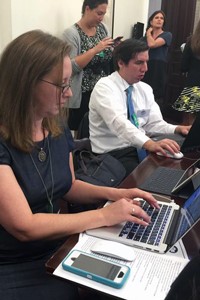
Patricia Solís, Research Associate Professor in the Department of Geosciences and Director of the Mapping for Resilience University Consortium (MRUC), attended the first-ever White House Mapathon in May, accompanied by recent TTU graduate Nayara Vasconcelos, student government representative of TTU's local chapter of Youth Mappers. MURC is USAID's strategic investment toward building a network of student mappers with the goal of helping service and relief agencies pinpoint places around the globe that need assistance and the most expedient routes to deliver it: for example, getting malaria prevention supplies to people in Mozambique; identifying evacuation routes for people in Ecuador to escape a pending volcanic eruption. The project uses the OpenStreetMap platform and in less than a year has received more than 1 million edits worldwide. "You can visualize the problems and visualize the solutions with mapping. If we can then do it using collaborative technologies, it can bring us together to address the development issues around the world that are among the most pressing on our planet," Solís said in an interview with Texas Tech Today. "But most importantly, the learning potential for making real connections to other places and other students is profound. Youth Mappers not only builds maps—we also build mappers."
College of Arts & Sciences
-
Address
Texas Tech University, Box 41034, Lubbock, TX 79409-1034 -
Phone
806.742.3831 -
Email
arts-and-sciences@ttu.edu
